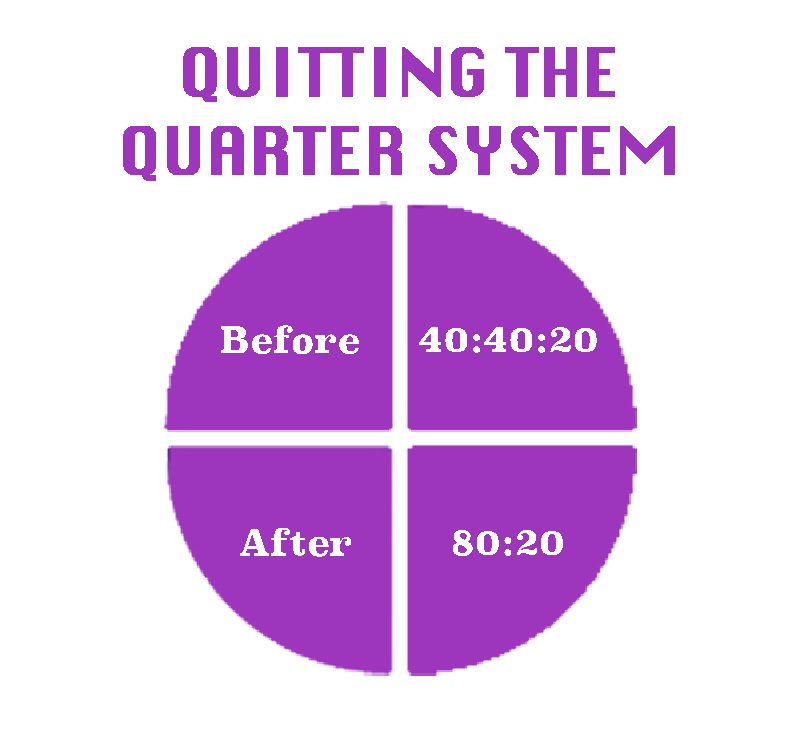District 225 eliminates quarter system for 2017-2018 school year
May 26, 2017
District 225 has decided to revise the grading system in which grades will no longer be determined at the end of a quarter, but instead at the end of the semester.
According to Cameron Muir, assistant principal of curriculum, the grading system will be changing from a 40:40:20 balance to a 80:20 balance. The semester final will still count for 20% of the semester grade, while the grade’s remaining 80% will be decided at the end of the semester.
Principal Lauren Fagel said, “[The new grading system is] kind of a small change, but I think it represents a big change.”
Fagel says a major development that comes with this change, is the fact that students will now be able to increase and decrease their grade throughout the semester without having a set grade from the first quarter.
“[As of now], that quarter one grade is like, ‘Okay, I can’t change that. That’s done,’” Fagel said. “Let’s say I didn’t start off very strong. I’m doing much better [now], but [I’m] stuck with that quarter grade, whereas [the grading system change] is more of a cumulative thing.”
Muir says this change will affect teachers and students by relieving stress they might have received from the quarter mark.
“I think the [change] has the potential not to have that level of intensity at the end of the first quarter and the third quarter that some students experience,” Muir said.
Rosanne Williamson, assistant superintendent of educational services, says the school will still be releasing progress reports.
“Parents will get a [‘midterm notification’] at the nine week mark […] just to give people an update,” Williamson said. “We’ll also notify parents at the five week mark if their child is not doing well.”
According to Fagel, the change in gradebook policy will ultimately help students with their mental health as they go through the school year.
“[The change] will mentally and psychologically help with kids feeling like ‘I have the whole semester to continue to improve’ versus this artificial stopping point,” Fagel said.



